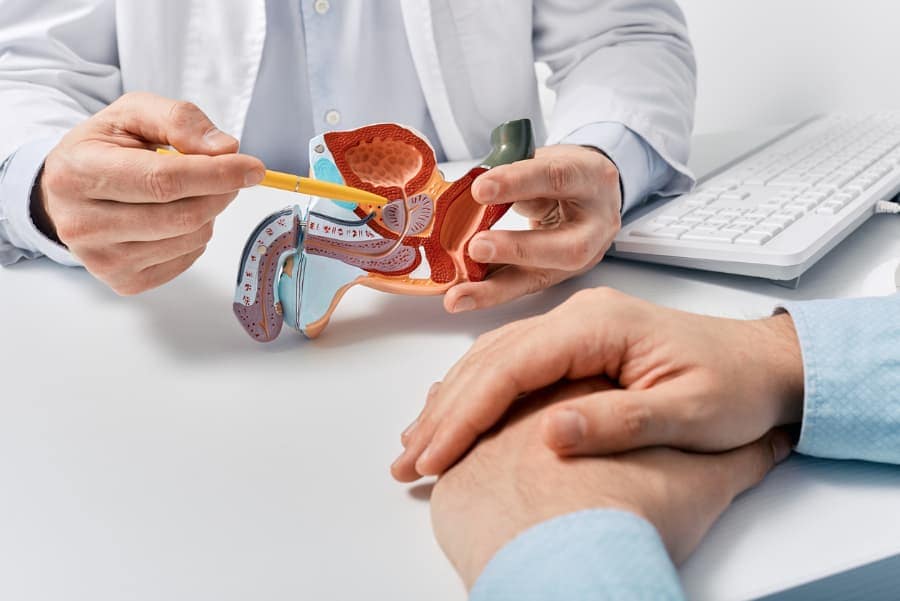The body acts as a series of interconnected systems, relying on one another to perform necessary functions. When an issue occurs with one system, others can be impacted, even if seemingly unrelated. This can sometimes include changes in sexual health and performance.
Men and women often find it difficult to discuss the topic of declining sexual health, but it is necessary to identify the underlying problem, which could stem from urinary issues. Here, the urology team at Richmond University Medical Center in Staten Island explains the connection between sexual and urologic dysfunction for men and women.
Urinary Infections
Infections and inflammatory urologic conditions often create severe discomfort. The uncomfortable side effects can lead to a decreased desire or ability to engage in sex for men and women. Treatment of urinary infections usually involves medications, which typically resolve the impact on sexual health and declining performance.
Common urinary infections include:
Urinary Tract Infection
Simply known as a UTI, a urinary tract infection refers to an infection in any part of the urinary system, which includes the kidneys, ureters, bladder, and urethra. The infection occurs when bacteria enter the urethra and infect the urinary tract.
While both men and women are susceptible to UTIs, women are much more likely to get urinary tract infections than men. Experts predict about 60% of women and 12% of men will get at least one UTI in their lifetimes. Furthermore, women are much more likely to incur multiple UTIs in their lifetimes. Studies show up to four in 10 women who get a UTI will get another one within six months.
Patients with a UTI and undergoing treatment are typically advised to avoid sexual intercourse until the treatment is complete and they are symptom-free.
Bladder Pain Syndrome
Another urologic condition that is more commonly seen in women than men is bladder pain syndrome (BPS). Also known as interstitial cystitis (IC), this chronic condition causes bladder pain and a frequent or urgent need to urinate, often disrupting sexual performance and urges.
The specific cause of the condition is not fully understood but some experts believe it to be related to autoimmune diseases, allergies, bladder lining defects, vascular disease, or mast cell abnormalities. In addition to impacting sexual health and intimate relationships, BPS can have a significant impact on quality of life.
Prostatitis
Prostatitis is a condition that causes inflammation of the prostate gland in men. The condition is most often caused by bacteria and can affect sexual performance in several ways, such as:
- Painful ejaculation: This symptom can interfere with sexual pleasure and may lead to a decreased desire to have sex.
- Erectile dysfunction: Severe prostatitis can directly cause erectile dysfunction.
- Changes in sperm: Chronic prostatitis can cause changes in sperm and semen that may lead to infertility
Sexual Incontinence
Sexual incontinence is a general term for the involuntary loss of urine during sexual activity. This can include urine leakage at the time of orgasm or during sexual stimulation. The condition can have many causes, including weakened muscles that control urination, nerve damage, other health conditions such as kidney stones, and more.
Affecting both men and women, sexual incontinence can undermine a person’s confidence to engage in sexual intercourse, leading to reduced sexual desire. People who experience sexual incontinence tend to avoid sexual activity altogether due to feelings of embarrassment over their condition. Treatment for sexual incontinence is based on various factors but can include noninvasive and traditionally invasive approaches.
Physical Drawbacks
Certain physical issues involving the male and female reproductive organs can interfere with sexual health and performance, such as:
Erectile Dysfunction
Erectile dysfunction (ED), also known as impotence, refers to a man’s inability to get or maintain an erection that is firm enough for sexual intercourse. It is a common condition that can affect men of all ages but is more commonly seen in older men.
ED cases have a wide range of causes, including clogged blood vessels, nerve damage, low testosterone levels, side effects from medication, and more. ED is treatable in almost all cases. Treatment often involves addressing the underlying cause of the ED.
Vaginal Atrophy
Vaginal atrophy is categorized as thinning, drying, and inflammation of the vaginal walls. The result is often pain, itching, or burning sensations during sex. The cause of vaginal atrophy is a loss of estrogen, most often after menopause. The condition can be treated in several ways, including estrogen therapy, lubricants and moisturizers, oral medications, and other approaches.
Speak to a Board-Certified Urologist Today
At Richmond University Medical Center, we understand the sensitivity surrounding urologic conditions impacting sexual health. Our compassionate team has created a welcoming environment for men and women to feel comfortable talking about their conditions. We offer an advanced care facility in Staten Island, New York, through Richmond Health Network. Patients experiencing sexual incontinence, bladder pain during sex, and other symptoms disrupting sexual health can find treatments. Contact us today for more information or schedule an appointment with one of our board-certified urologists.




